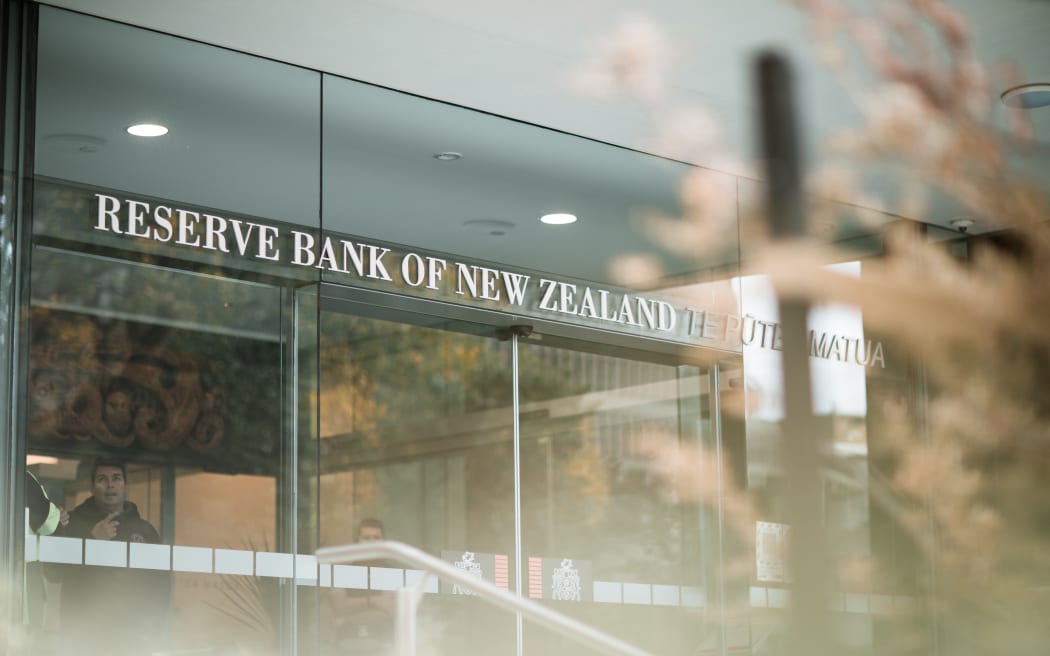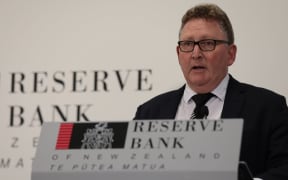
A review has found the Reserve Bank's monetary policy decisions over the last five years have reflected data available at the time. Photo:
The Reserve Bank's monetary policy decisions were consistent with the data available at the time - but should have been tightened earlier to counter inflation, a review has found.
The 122-page Review and Assessment of the Formulation and Implementation of Monetary Policy (RAFIMP) is a detailed report card on what the Monetary Policy Committee (MPC) decided to do, what worked, what it could have done better and lessons learned.
The review, which was conducted by the Reserve Bank, found its decision to ease monetary policy during the Covid-19 pandemic was warranted and worst-case economic scenarios were avoided.
"The last five years were uniquely challenging," the report said. "In particular, Covid-19 was a highly disruptive shock. Monetary policymakers were faced with widespread uncertainty."
However, it also found monetary policy should have been tightened earlier in 2021 including by raising the official cash rate, and curbing or halting the large-scale asset purchase programme earlier.
Despite this, the bank's report said such actions would not have completely halted rising inflation which was being heavily boosted by global supply problems.
"Beginning the monetary policy tightening earlier in 2021 would not have fully offset the strong inflationary impulse stemming from a series of supply shocks, including Russia's invasion of Ukraine."
Putting an earlier stop to the funding for lending programme, which allows banks to borrow cheaply and directly from the Reserve Bank with the aim of providing cheaper rates to mortgagees and other debt holders, could also have helped - but the bank needed to maintain trust.
"In hindsight, the FLP could have been designed with more flexibility. For example, the inclusion of an early termination clause with reasonable notice in the event of changed economic conditions could have been included, although such an amendment could potentially reduce the effectiveness."
The review identified nine areas for improvement:
- More research into the impacts of supply shocks (e.g. pandemics, earthquakes, climate change, war) on inflation
- Incorporate more and different types of higher-frequency data into the decision making process
- Develop more indicators of policy tightness and a better understanding of influences on neutral interest rates (when interest neither adds to nor curbs growth)
- Learn more about new fiscal policy instruments used during the pandemic like wage subsidy and other support packages to understand their impacts and how these could be used in future downturns
- Further clarity over how the requirement to support maximum sustainable employment fits within the Reserve Bank's remit
- Continue using the LSAP programme (government bond buying) as a tool alongside OCR changes in future
- Funding-for-lending and similar programmes should include more flexibility in future so it can be shut down during periods of instability
- The official cash rate (OCR) should remain the preferred tool for setting monetary policy
- However, additional monetary policy tools should be kept ready in case needed - including being prepared to use negative interest rates
The report is broken into three periods, with the first covering the period between 2017 and 2019 when inflation was below the central bank's 1 to 3 percent target, followed by the 2020 initial response to the pandemic, and from 2021, when inflation rose above the target.
Former Reserve Bank economist Michael Reddell criticised the review, saying as a self-assessment it was never going to be harsh and had left questions unanswered.
"They've still pulled their punches and there's some spin there as well," he said.
"It's evident to everybody that inflation's been high - so, you know, by definition monetary policy should have been tightened earlier - but the big question is why. What about their systems, what about their people, what about their models led us to this sort of outcome?"
Reddell said other countries may have made similar mistakes but that should not stop the Reserve Bank from scrutinising its actions.
The RAFIMP was conducted by the central bank, but was peer reviewed by international experts including Australian National University professor Warwick McKibbin, and former Bank of Canada deputy governor Lawrence Schembri.
The review became a legal requirement in 2018, although the RBNZ said it also carried out regular reviews of monetary policy.
The review covers the MPC's decisions on the official cash rate (OCR) and additional monetary policy (AMP) tools introduced during the Covid-19 pandemic.
Reserve Bank took 'softly, softly approach' - economist
Ahead of the report's release, Infometrics director and principal economist Brad Olsen said while some "incredibly tough" decisions had to be made at the start of the pandemic and most forecasters had been on board with the Reserve Bank's actions at that time.
However, the bank should have recognised the need to combat inflation sooner.
"We know that inflation was already starting to ramp up at the end of 2021 before the Russian invasion of Ukraine, before those other pressures grew," he said.
"We were calling for a 50 basis point increase the Official Cash Rate and August last year, it took until early 2022 for the Reserve Bank to do that.
"In our minds, if you are going to cut and be so hardcore on the downside with the risks as they were, you have to be willing to go quite as hard on the up. We didn't see that from the Reserve Bank all the way through most of 2021, in our minds you saw the Reserve Bank that was taking a more softly softly approach."
He said there was a lot of talk over how much of the blame lay with international versus domestic inflation, but in the end what households cared about was that they were being hit hard.
"More importantly, we know that domestically-based inflation is running at a record high of 6.6 percent over the last year, that is stuff that we can control."
Opposition parties have been critical of Reserve Bank governor Adrian Orr's five-year reappointment this week, ahead of the five-year review and in the absence of an independent analysis of its decisions.
National has been critical of the process and the government's decision to go ahead with a five-year reappointment rather than a shorter-term one ahead of next year's election. ACT meanwhile has been openly critical of Orr's performance.
Olsen said the focus should remain on the process rather than the people.
"We know that the Reserve Bank has to be bipartisan, we know that the the ability to enact and enable monetary policy has to be independent."
Olsen said he personally had a lot of time for Orr who had done an incredibly difficult job over the past few years, but the process and conditions should be discussed and debated.
"I think the worry I have is when we look at the report card from the Reserve Bank Board, who unanimously recommended the reappointment to the finance minister. There was no real recognition that we have inflation running considerably outside of the target band, the job of the Reserve Bank is to keep prices stable over the medium term. We're not seeing that at the moment.
"But, realistically, now that there is a decision that has been made, we have to get behind the Reserve Bank governor because he, the Monetary Policy Committee, the entire apparatus of the Reserve Bank has some incredibly tough work to do."








